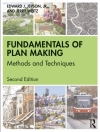The economics of sustainability is much more complex than the neoclassical (Newtonian) economic approach to economic efficiency. Forest resources provide the ideal starting point for the economic analysis of sustainability. This book provides a systematic critique of neoclassical economic approaches and their limitations with respect to sustainability. Leading economists from different streams of economics discuss key economic aspects of sustainability and sustainable forest management including complexity, ethical issues, consumer choice theory, intergenerational equity, non-convexities, and multiple equilibria. This is the book which integrates different streams of economics – complexity theory, behavioral economics, post-Keynesian consumer choice theory, social choice theory, and non-convexities – and suggests the main features of Post-Newtonian economics.
This book is followed by a companion book, Institutions, Sustainability, and Natural Resources: Institutions for Sustainable Forest Management, Volume 2 in the series.
قائمة المحتويات
Economics, Sustainability, and Forest Management.- Complexity, Ethics, and the Economics of Sustainable Forest Management.- Complexity, Muddling Through, and Sustainable Forest Management.- Inter-Temporal Ethics, Modern Capital Theory and the Economics of Sustainable Forest Management.- Consumer Choice Theory and the Economics of Sustainable Forest Management.- Post-Keynesian Consumer Choice Theory for the Economics of Sustainable Forest Management.- Behavioral Economics and Sustainable Forest Management.- How Sustainable is Discounting?.- Social Choice Theory and the Economics of Sustainable Forest Management.- Intergenerational Equity and the Forest Management Problem.- Can Stock-Specific Sustainability Constraints be Justified?.- Non-Linearities, Multiple Equilibria and The Economics of Sustainable Forest Management.- Complexities of Dynamic Forest Management Policies.- Nonlinearities, Biodiversity Conservation, and Sustainable Forest Management.- Joint Forest Management: Experience and Modeling.- Epilogue.- Post-Newtonian Economics and Sustainable Forest Management.












